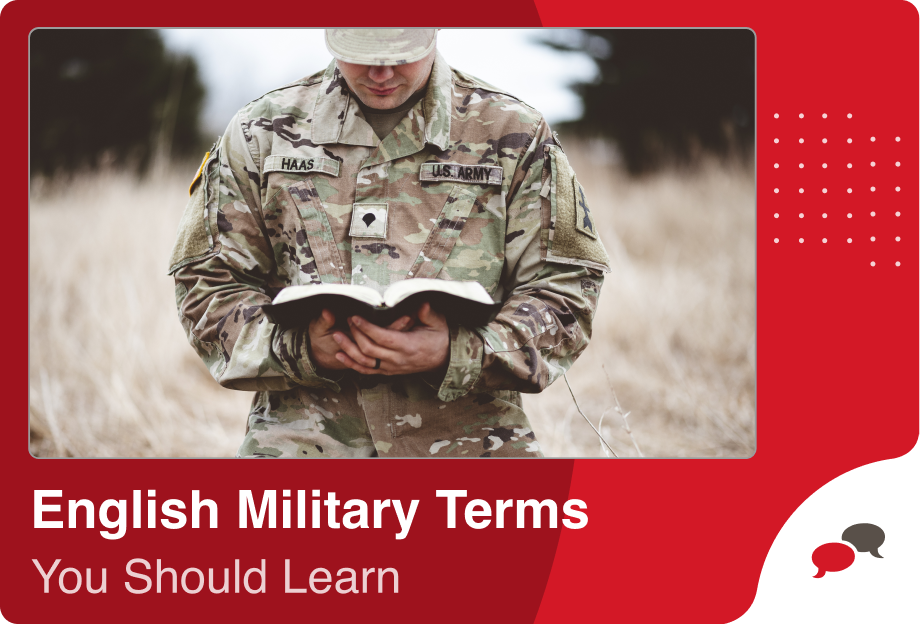Talking is super fun with idioms, which are like secret codes in English! These phrases are unique in that they don’t mean exactly what they say, but they create vivid images in our minds. Your words can become a big, bright adventure when you say ‘I’m over the moon!’ instead of just ‘I’m happy’. Learning idioms is like unlocking a treasure chest of cool ways to express yourself. The use of idioms makes kids’ English sparkle, as if they’ve been speaking it forever!
Parents, it’s a fantastic way to improve your children’s language skills and confidence by teaching them commonly used idioms. Children can gain a better understanding of native speakers through the use of idioms, which can make books, movies, and conversations more exciting. Creative thinking is also encouraged by them, as children learn to play with words in fun and imaginative ways. Your child will have a head start in speaking English naturally when you introduce idioms early. Let’s look at some of the most common idioms that you can teach your child to use in their everyday English.
Learn English with EnglishCentral Kids
Would you like to take your child’s learning journey further? EnglishCentral Kids provides a fun and successful education with 25 minute one-on-one lessons for all ages and levels, along with lesson reports afterwards. There are fun and educational video lessons for your child to explore, and an AI tutor MiMi that will help your child with their English learning journey. Quizzes, interactive activities and entertaining vocabulary learning tools are gathered all on one platform and tailored according to your child’s level and needs.
Sign up to EnglishCentral Kids today for your child, keep learning and practicing!
Commonly Used English Idioms
Piece of Cake
Meaning: Something very easy to do.
Example: The test was a piece of cake; I finished it in 20 minutes.
Hold your Horses
Meaning: Wait or slow down.
Example: Hold your horses! Before we decide, let’s make sure we have all the important details first.
Like Two Peas in a Pod
Meaning: Very similar, especially in appearance or behavior.
Example: The twins are like two peas in a pod; it’s almost impossible to tell them apart.
Break a Leg
Meaning: A way to wish someone good luck.
Example: Break a leg in your play tonight; I just know you’re going to do an awesome job!
Busy as a Bee
Meaning: Extremely busy or hardworking.
Example: She’s been busy as a bee preparing for the wedding.
Bite the Bullet
Meaning: To face a difficult situation with courage.
Example: I didn’t want to go to the dentist, but I had to bite the bullet.
Cost an Arm and a Leg
Meaning: Extremely expensive.
Example: That wedding dress costs an arm and a leg!
Spill the Beans
Meaning: To reveal a secret.
Example: Come on, spill the beans. Who is organizing the surprise party?
Bigger Fish to Fry
Meaning: More important things to deal with.
Example: I can’t worry about that now; I have bigger fish to fry.
Over the Moon
Meaning: Extremely happy or excited.
Example: She was over the moon when she got accepted into her dream job.
Cool as a Cucumber
Meaning: Very calm, even under pressure.
Example: During the exam, he stayed cool as a cucumber.
Break the Ice
Meaning: To start a conversation in an awkward or tense situation.
Example: Telling a joke helped break the ice at the meeting.
Cry over Spilled Milk
Meaning: To regret something that cannot be undone.
Example: There’s no use crying over spilled milk; our focus should be on fixing the problem.
Once in a Blue Moon
Meaning: Something that happens very rarely.
Example: I only see my grandparents once in a blue moon.
Barking up the Wrong Tree
Meaning: Mistaking someone or something for the cause of a problem.
Example: If you think I ate your donut, you’re barking up the wrong tree.
Catch Someone Red-handed
Meaning: To catch someone in the act of doing something wrong.
Example: The teacher caught him red-handed while he was cheating on the test.
When Pigs Fly
Meaning: Something that will never happen.
Example: His mom will clean his room when pigs fly!
Raining Cats and Dogs
Meaning: Raining very heavily.
Example: We can’t go out for dinner today; it’s raining cats and dogs.
To Teach an Old Dog New Tricks
Meaning: It’s hard to change someone’s habits, especially as they age.
Example: My grandma says you can’t teach an old dog new tricks, but she’s learning how to create an Instagram account!
Call it a Day
Meaning: To stop working for the day.
Example: We’ve worked hard tonight; let’s call it a day.
Better Late Than Never
Meaning: It’s better to do something late than not at all.
Example: He finally apologized for being selfish—better late than never.
Let Someone off the Hook
Meaning: To excuse someone from responsibility or punishment.
Example: I let her off the hook for missing the deadline because she was sick.
Pull Someone’s Leg
Meaning: To tease or joke with someone.
Example: Are you serious about moving to Paris, or are you just pulling my leg?
Speak of the Devil
Meaning: Said when someone you were talking about suddenly appears.
Example: Speak of the devil, here comes David now!
Don’t Count Your Chickens Before They Hatch
Meaning: Don’t assume something will happen until it does.
Example: You haven’t won the competition yet, so don’t count your chickens before they hatch.
Every Cloud Has a Silver Lining
Meaning: Every bad situation has a positive aspect.
Example: Losing his job was tough, but every cloud has a silver lining— He found a better one.
Saving for a Rainy Day
Meaning: Saving money for future needs or emergencies.
Example: I’m putting some money aside, saving for a rainy day.
A Storm in a Teacup
Meaning: A big fuss over a small problem.
Example: Their argument was just a storm in a teacup; they’ll be fine tomorrow.
Haste Makes Waste
Meaning: Rushing leads to mistakes or wasted effort.
Example: Take your time with the project; haste makes waste.
Let Sleeping Dogs Lie
Meaning: Avoid bringing up old problems or conflicts.
Example: Do not bring up the old argument; let sleeping dogs lie.
On Cloud Nine
Meaning: Extremely happy or blissful.
Example: She’s been on cloud nine since her engagement.
There are Clouds on the Horizon
Meaning: Problems or challenges are approaching.
Example: The company is doing well now, but there are clouds on the horizon with the new rules.
Hit the Nail on the Head
Meaning: To describe or do something exactly right.
Example: You hit the nail on the head with your analysis of the issue.
Let the Cat out of the Bag
Meaning: To reveal a secret, often unintentionally.
Example: Who let the cat out of the bag about the surprise party?
The Elephant in the Room
Meaning: An obvious problem everyone ignores.
Example: Nobody mentioned the budget cuts, but it was the elephant in the room.
To Think Outside the Box
Meaning: To think creatively or unconventionally.
Example: We need to think outside the box to find her the perfect gift.
Hit the Books
Meaning: To study hard.
Example: I have a big exam tomorrow, so I need to hit the books tonight.
A Fishy Story
Meaning: A story that seems suspicious or unbelievable.
Example: His excuse for being late to the class sounds like a fishy story to me
To Throw the Book at Someone
Meaning: To punish someone severely.
Example: The judge threw the book at him for breaking the law.
A Walk in the Park
Meaning: Something very easy or pleasant.
Example: Fixing the computer was a walk in the park for her.
Why the Long Face?
Meaning: Asking someone why they look sad or upset.
Example: Hey, why the long face? Did something go wrong?
Burn the Candles at Both Ends
Meaning: To overwork or exhaust oneself by doing too much.
Example: She’s been burning the candle at both ends with work and school.
Strike While the Iron is Hot
Meaning: To act quickly when an opportunity arises.
Example: You’ve got a great idea! Go and tell your teacher—strike while the iron is hot!
Look Before You Leap
Meaning: Think carefully before acting.
Example: Before buying this toy, look before you leap and consider your options.
No Sooner Said Than Done
Meaning: Something is done immediately after being mentioned.
Example: I asked him to fix the faucet, and it was no sooner said than done.
Where Do You Stand On?
Meaning: Asking someone’s opinion or position on an issue.
Example: Where do you stand on Sarah and Hannah’s fight?
That is a Weight off my Mind
Meaning: Feeling relieved after resolving a worry.
Example: Finishing the homework on time is a weight off my mind.
Never Again Will You Catch Me
Meaning: Refusing to repeat an unpleasant experience.
Example: Never again will you catch me going on that roller coaster!
Don’t Judge a Book by its Cover
Meaning: Don’t judge someone or something based on appearance alone.
Example: He may seem quiet, but don’t judge a book by its cover—he’s very funny.
Take Turns
Meaning: To alternate doing something.
Example: Let’s take turns driving so no one gets too tired.
Frequently Asked Questions About English for Kids – Commonly Used Idioms
How can teachers make learning idioms fun for kids?
Kids can find learning idioms fun by using interactive and creative methods that spark curiosity and engagement, which teachers can use. Using games like idiom charades, which require kids to act out phrases such as ‘piece of cake’ or ‘raining cats and dogs’, transforms learning into play. Visualizing meanings is a result of telling stories with vivid examples, like describing a character who’s as busy as a bee.
Colorful flashcards or drawings can be used by teachers to connect idioms like ‘when pigs fly’ with their meanings, making lessons both visual and memorable. A musical twist can be added to songs or rhymes that contain idioms, such as singing about being on cloud nine. Role-playing scenarios in which kids use idioms in short skits, like saying ‘hold your horses’ in a pretend race, encourages practical use while also creating a lively classroom environment. These activities make idioms more exciting and memorable for young learners.
Why should kids learn English idioms?
English idioms should be taught to children because they make English more fun, colorful, and help children sound more like native speakers. Children gain a deeper understanding of phrases they hear in stories, movies, or everyday conversations by understanding idioms, which boosts their comprehension. By mastering idioms, kids can improve their language skills, connect better with others, and have a fun time with English.
Can idioms help kids improve their English fluency?
Improving English fluency can be achieved by using idioms to make speech more natural and engaging for children. Phrases such as ‘piece of cake’ can improve vocabulary and confidence. The use of idioms such as ‘raining cats and dogs’ in games and stories promotes fluency in speaking and listening, which improves overall expressiveness.
What’s the “silver lining” in “every cloud has a silver lining”?
It means every bad situation has a positive aspect, like a cloud’s bright edge.
You can access everything your child needs to learn English on a single platform! With 25-minute live lessons guided by teachers specialized in child education, entertaining and instructive interactive videos designed for child development, vocabulary learning tools, the AI Tutor MiMi, quizzes, and interactive activities, EnglishCentral Kids offers a personalized and quality education plan tailored to your child’s needs at affordable prices. How about registering for EnglishCentral Kids now and starting your child’s English learning journey?











